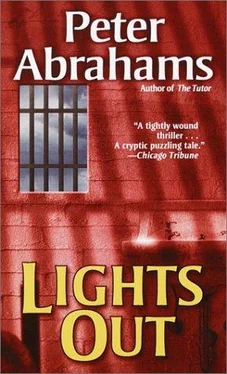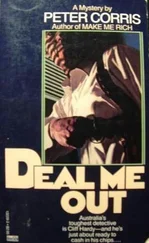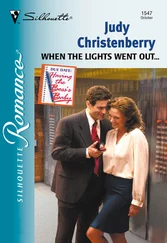Peter Abrahams - Lights Out
Здесь есть возможность читать онлайн «Peter Abrahams - Lights Out» весь текст электронной книги совершенно бесплатно (целиком полную версию без сокращений). В некоторых случаях можно слушать аудио, скачать через торрент в формате fb2 и присутствует краткое содержание. Год выпуска: 2002, ISBN: 2002, Издательство: Fawcett Books, Жанр: Триллер, на английском языке. Описание произведения, (предисловие) а так же отзывы посетителей доступны на портале библиотеки ЛибКат.
- Название:Lights Out
- Автор:
- Издательство:Fawcett Books
- Жанр:
- Год:2002
- ISBN:978-0345445780
- Рейтинг книги:4 / 5. Голосов: 1
-
Избранное:Добавить в избранное
- Отзывы:
-
Ваша оценка:
- 80
- 1
- 2
- 3
- 4
- 5
Lights Out: краткое содержание, описание и аннотация
Предлагаем к чтению аннотацию, описание, краткое содержание или предисловие (зависит от того, что написал сам автор книги «Lights Out»). Если вы не нашли необходимую информацию о книге — напишите в комментариях, мы постараемся отыскать её.
Lights Out — читать онлайн бесплатно полную книгу (весь текст) целиком
Ниже представлен текст книги, разбитый по страницам. Система сохранения места последней прочитанной страницы, позволяет с удобством читать онлайн бесплатно книгу «Lights Out», без необходимости каждый раз заново искать на чём Вы остановились. Поставьте закладку, и сможете в любой момент перейти на страницу, на которой закончили чтение.
Интервал:
Закладка:
“Pass, sir?” said one of the security guards.
“What?”
The security guard’s eyes gave him a quick once-over. Eddie understood how he must have appeared in his soaked windbreaker, chinos, sneakers: much closer to the man in the blanket than to the ones with the suits and briefcases.
“You need a pass,” said the security guard, dropping the sir .
“Don’t have one.”
“Do you work here?”
“No.”
“What’s your business?”
Eddie almost replied, “I’m looking for work,” before he realized the guard wanted to know what business he had in the building.
“I’m here to see my brother,” Eddie said. “He’s got an office. Suite 2068.”
“One moment. Sir.” The guard opened a book. “What name would that be?”
“J. M. Nye,” said Eddie. “And Associates.”
The guard ran his finger down a page, eyes scanning back and forth. “Don’t see it,” he said.
“It might be 2086.”
“That’s not the problem.” The guard turned the page. “The problem is there’s no J. M. Nye, period. Ring a bell?” he asked the other guard.
“Nope.”
The first guard spoke into a portable phone, too quietly for Eddie to hear. He put down the phone, shook his head at Eddie. “Nope.”
“I know he was here at one time,” Eddie said. “Maybe he’s left his new address.”
“We don’t keep information like that,” the guard said, glancing over Eddie’s shoulder. “Everybody’s always moving. This is New York.”
People in suits were jamming up behind Eddie. The chocolate guards, without being aggressive about it, were blocking his way. He wasn’t going to get past this play-school security check.
Eddie went back through the grand lobby, through the revolving door, into the street. The man in the blanket noticed him, tried to make eye contact again. But this was New York, where everyone moved. Eddie would have to move too. He kept going.
Eddie had never been in a tower like 222 Park Avenue before, had seldom been in an office building of any kind, but he’d seen a lot of urban-drama type movies in prison, pseudo-experience he now relied on. He walked around the building until he found a parking garage, as he’d expected. He went down the ramp. A man in a glass booth watched him.
“Forgot my briefcase,” Eddie said without stopping, the way some actor, Lee Marvin maybe, might have done it.
The elevator door opened just as he got there. A good thing, in case the man in the booth was still watching. Eddie stepped in and pressed number twenty. The door slid closed; the elevator rose, but only to G, where it stopped. The door opened. Two women got on. Beyond them, Eddie could see the security check. One of the guards turned and looked his way. He blinked as the door closed.
The women were well dressed, well groomed, angry inside. Eddie was good at knowing things like that; he’d had to be. The door opened at twelve and the women got out.
“The residuals are a joke,” one said.
“No one’s laughing,” answered the other.
Eddie rode the rest of the way by himself, looking at his bald and damp reflection on polished brass.
Bing. Twenty. The door opened, not, as Eddie had expected, into a corridor, but directly into a reception area hung with paintings, full of flowers. Werner, Pratt, Olmsted, Larch and Groot, read a plaque on the wall, but Eddie had no idea what they did.
A man in a gray-flannel suit, yellow tie, and candy-striped shirt sat at the desk, tapping at a keyboard. “Sir?” he said.
“Is this twenty sixty-eight?” Eddie said.
“I’m afraid not.”
“Or maybe twenty eighty-six.”
“They don’t exist,” said the man. “This whole floor is Werner, Pratt. It’s simply two thousand.”
“My brother’s office was here. J. M. Nye. And Associates.”
The man looked blank. A phone buzzed. “Excuse me,” he said, picking it up. He was very polite. Eddie wanted to knock his computer off the desk, not hard, just a polite little toppling. Instead, he picked up a phone book lying on the desk, looked up J. M. Nye and J. M. Nye and Associates, found listings for neither. He closed the book. The man on the phone reached for it and tucked it in a drawer.
Eddie returned to the lobby, hopping over the velvet rope on his way out. The security guards didn’t notice. Anyone already inside was presumed to be safe. That was another thing that differentiated this security check from the ones Eddie knew.
He stood outside the revolving door, lost in thought. He wasn’t aware that he was standing over the man in the blanket until he felt a sharp kick against his ankle. He looked down.
“This is my spot,” said the man, not seeming to recognize Eddie at all. “Fuck off.”
Eddie didn’t like the implication, even though he’d already made the comparison himself, and he didn’t like being kicked. He recalled what he had done to the last man who’d kicked him. But Eddie did nothing this time. The man was protected by his blanket and his sign.
An hour and a half later, Eddie was in Brooklyn, standing outside 367 Parchman Avenue. It was a dirty brick building a few stories high, without a homeless man, revolving door, marble lobby, or security check. There was just an outer door and an inner door, with a row of buzzers in the square hall between them. Eddie checked the label on Prof’s mailing tube and pressed buzzer three. Nothing happened. He pressed it a few more times, then tried the inner door. It opened.
Number three was at one end of the basement corridor. The corridor was dark and full of smells-fried food, spilled beer, cigarette smoke. TV voices came through the door of number three. Eddie knocked.
“Who is it?” A woman’s voice, impatient.
“Ed Nye,” Eddie said, and started to add, “a friend of Prof’s.” The door opened before he could finish.
“I know who you are.” The woman was tall and lean. Eddie didn’t recognize her at first. She wore a red terrycloth robe, not the reindeer sweater she’d had on in Prof’s photograph. She’d also seemed rounder in the photograph, and darker of hair and complexion, at least the way he remembered it. But he wasn’t sure how well he remembered it, especially since there’d been a little mixing in his mind of her image and the image of the woman in the porn shot that had been taped beside it.
“Tiffany?” he said.
“That’s me.” She had dark eyes, intelligent, alert, even excited, he thought, although he didn’t know what there was to be excited about.
Eddie searched for some way to begin, found none, said, “Here,” and handed her the cardboard tube.
“What’s this?”
“From Prof. I said I’d mail it. But I was in New York anyway, so…” He took a step back, delaying his departure only to think of the phrase that would take him to good-bye .
Tiffany put a hand on his forearm, a long white hand, nails painted red. “You’re not running off, are you? You’ve come all this way. At least I can give you coffee.”
“No, thanks.”
She didn’t remove her hand. “Please. Prof would be really pissed if he found out I didn’t even give you coffee.”
“Okay,” Eddie said. She let go.
He followed her inside. She locked the door, slid two bolts into place. That gave Eddie a bad feeling. Cool it, he told himself.
But the apartment did nothing to take the prison feeling away. For one thing, it was small. No hall, just a kitchen he was already in and a bedroom off it. For another, it had no windows. Light came from a fluorescent strip over the stove and the TV glowing by the unmade bed. It could have been midnight. Those reindeer sweaters had led him to expect something better. He glanced around for some sign of the two kids and saw none.
Читать дальшеИнтервал:
Закладка:
Похожие книги на «Lights Out»
Представляем Вашему вниманию похожие книги на «Lights Out» списком для выбора. Мы отобрали схожую по названию и смыслу литературу в надежде предоставить читателям больше вариантов отыскать новые, интересные, ещё непрочитанные произведения.
Обсуждение, отзывы о книге «Lights Out» и просто собственные мнения читателей. Оставьте ваши комментарии, напишите, что Вы думаете о произведении, его смысле или главных героях. Укажите что конкретно понравилось, а что нет, и почему Вы так считаете.












